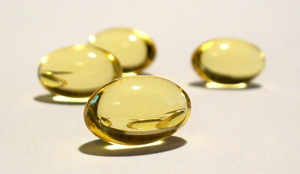itamin D supplementation could be a safe and cost-effective treatment strategy for individuals with multiple sclerosis, according to new research published in the journal Neurology.
Researchers found a high daily dose of vitamin D for 6 months reduced MS-related T cell activity in patients with the disease.
Numerous studies have associated low levels of vitamin D with increased risk of multiple sclerosis (MS). Additionally, among people who have MS, low vitamin D levels have been linked to greater disability and more severe symptoms.
Whether vitamin D supplementation may benefit patients with MS, however, has been a subject of debate.
With the aim of finding out, study coauthor Dr. Peter A. Calabresi, of Johns Hopkins University School of Medicine in Baltimore, MD, and colleagues analyzed the effects of vitamin D supplementation among 40 adults aged 18-55 with relapsing-remitting MS.
Each individual took either 10,400 IU (high dose) or 800 IU (low dose) of vitamin D3 supplements daily for 6 months. For comparison, the standard recommended daily vitamin D intake for adults aged 18-70 is 600 IU.
At study baseline and at 3 and 6 months, the vitamin D levels of each participant were measured through blood tests, and the researchers also assessed subjects' MS-related T cell responses - an indicator of disease activity.
High-dose vitamin D reduced MS-related T cell activity
The study results revealed that individuals who took the high dose of vitamin D3 demonstrated a reduction in the percentage of T cells associated with MS activity.
Specifically, the researchers found that when vitamin D levels in the blood reached greater than 18 nanograms per milliliter (ng/ml), each further 5 ng/ml rise in vitamin D levels was linked to a 1% fall in the percentage of interleukin-17 T cells in the blood; these cells are believed to play a role in MS pathogenesis.
No reduction in the percentage of interleukin-17 T cells in the blood was identified among individuals who took the low dose of vitamin D3.
There were no differences in side effects from vitamin D supplementation between the high-dose and low-dose groups, according to the researchers, and one person from each group experienced a disease relapse.
Though MS incidence and prevalence is not currently tracked in the US, it is estimated that around 400,000 Americans are living with the condition and around 200 new cases are diagnosed each week.
At present, there is no cure for MS; symptoms and the course of disease are normally managed through medications. But according to Dr. Calabresi, these latest findings indicate there may be a promising new treatment option for MS:
"These results are exciting, as vitamin D has the potential to be an inexpensive, safe and convenient treatment for people with MS.
More research is needed to confirm these findings with larger groups of people and to help us understand the mechanisms for these effects, but the results are promising."
MS patients may benefit from vitamin D supplements
- Hits: 1798




